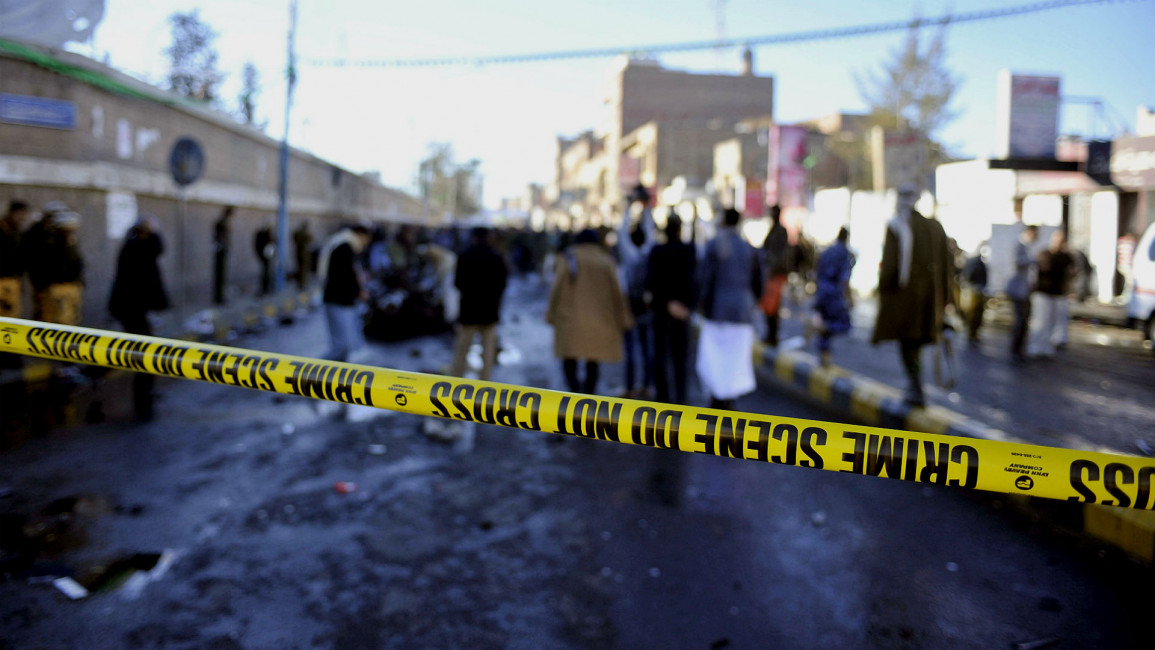At least 20 dead in Yemen carnage
At least twenty people were killed on Wednesday when a car bomb exploded outside a police academy in Yemen's capital Sanaa, officials said.
The attack struck as dozens of Yemenis queued to join the police academy in the centre of the capital and also wounded at least 23 people, Sanaa governor Abdulqader Hilal told the official Saba news agency.
Unstable Yemen has been hit by a wave of violence in recent months, with a powerful Shia militia clashing with tribal forces and the country's branch of Al-Qaeda.
Ambulances rushed to take the wounded to hospital as security forces sealed off the area. Body parts and debris from the vehicle used in the attack were strewn on the ground, an AFP correspondent at the scene said.
There was no immediate claim of responsibility, but Al-Qaeda in the Arabian Peninsula (AQAP), the militant network's affiliate in Yemen, has taken credit for previous such attacks on security forces. Yemen has been dogged by instability since an uprising forced longtime strongman Ali Abdullah Saleh from power in 2012.
Unrest grew after Houthi militia overran Sanaa unopposed in September.
The militia have since expanded their presence in central and western Yemen, meeting fierce resistance from Sunni tribes and Al-Qaeda militants.
A suicide bomb attack on Houthi supporters in central Yemen last week killed 49 people.
Four people including a reporter were killed Sunday in another blast targeting a gathering of Houthis in south western Yemen, while six militiamen were wounded in a blast in Sanaa on Monday.
AQAP, considered by the United States to be Al-Qaeda's most dangerous branch, has pledged to fight the Houthis.
Yemen is a key ally of the United States in its fight against the jihadist network, allowing Washington to carry out a longstanding drone war on its territory against AQAP.
President Abdrabuh Mansur Hadi has struggled to assert his authority since the Houthi takeover of the capital. A new Yemeni government was formed in November as part of a UN-brokered peace deal aimed at restoring stability.
Made up of technocrats, the government was agreed with the Houthis and its formation was meant to pave the way for them to loosen their hold on Sanaa, though there have been no signs of the militia abandoning positions.
Authorities are also trying to cope with a longstanding separatist movement in southern areas of the country, where an independent South Yemen existed from the end of British colonial rule in 1967 until union with the north in 1990.
The turmoil has raised fears that Yemen, which neighbours oil-rich Saudi Arabia and lies on the key shipping route from the Suez Canal to the Gulf, may become a failed state similar to Somalia.



